The Welsh language has a wide range of idiomatic sayings and phrases that are worth exploring if your aim is to sound like a native. Why not see if you can slip some of the following into your next conversation!
1. Dim ffiars o beryg!
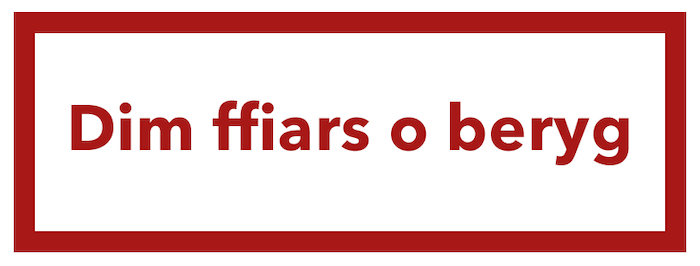
English translation: Not likely! Not a chance!
This has got to be my favourite Welsh idiom, which is why I’ve placed it at the top of the list. The literal translation is “no fear of danger” and I highly suspect “ffiars” has been borrowed from the English word “fears”.
- Doedd dim ffiars o beryg i mi fynd yn ôl. (There was no way I was going back.)
- Wnei di ddim cael ffrind gorau newydd, na wnei? – Na! Dim ffiars o beryg! (You won’t find a new best friend, will you? – No, not a chance!)
2. O lygad y ffynnon

English translation: From the horse’s mouth, first-hand
A great time to use this idiom is when you want to hear something from the actual source rather than relying on rumours and gossip. It literally means “from the eye of the well”.
- Daeth y geiriau doeth hynny yn syth o lygad y ffynnon. (Those wise words came straight from the horse’s mouth.)
- Bydd yn gyfle i glywed o lygad y ffynnon am broblemau lleol. (It will be a chance to hear first-hand about local problems.)
3. Gwell hwyr na hwyrach
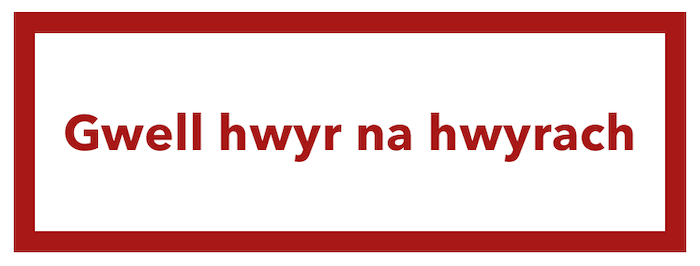
English translation: Better late than never
Whereas in English we tend to say “better late than never”, the Welsh are more inclined to say “better late than later” – but ultimately they mean the same thing!
- Mi gollais i’r trên. – O wel, gwell hwyr na hwyrach! (I missed the train. – Oh well, better late than never!)
- Dyma fi ar ôl mwy na dau fis. Wel, gwell hwyr na hwyrach. (Here I am after more than two months. Well, better late than never.)
4. Mynd o flaen gofid
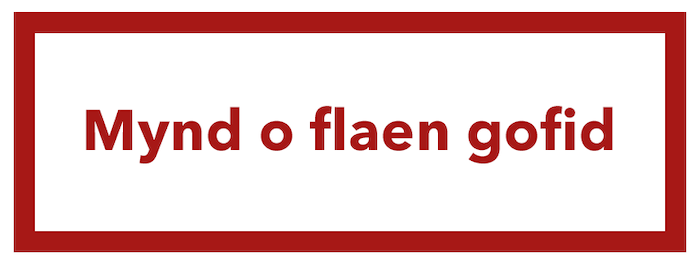
English translation: Anticipate/assume the worst
Here we have a very popular phrase that most learners will come across at some point. It literally means “go ahead of grief” and can be used when someone is looking for difficulties in a situation where they may not even be any, causing them to worry for nothing. It’s close in meaning to the English phrase, “We’ll cross that bridge when we come to it.”
- Paid â mynd o flaen gofid. Ella nad ydy’r lwmp yn ganser. (Don’t assume the worst. Maybe the lump isn’t cancer.)
- ‘Sdim pwynt mynd o flaen gofid. (There’s no point worrying until it happens.)
5. Pawb at y peth y bo
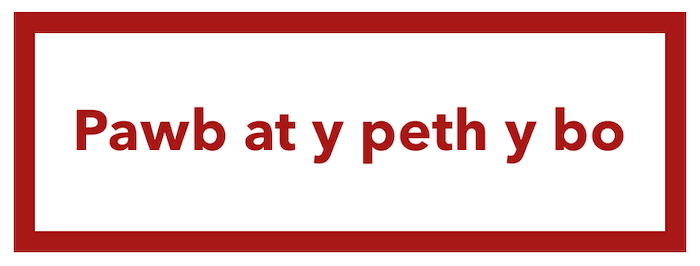
English translation: Each to their own
This is one of the first idioms I encountered when I started learning Welsh, and I found that it rolled off my tongue so nicely that I couldn’t stop myself from repeating it for days on end! It is used to say that we all have different tastes and interests, or that people are free to like different things.
- Dw i’n licio caws efo siocled. – Wir? Wel, pawb at y peth y bo. (I like cheese with chocolate. Really? Well, each to their own.)
6. Ar bigau’r drain
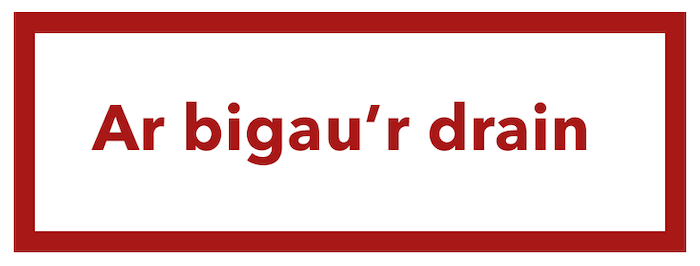
English translation: To be on tenterhooks
This expression literally translates as “on the point of thorns” which is a very evocative way of saying you’re anxious, nervous or waiting in suspense for something to happen.
- Bydd pawb ar bigau’r drain eisiau gwybod be wnaiff Carys nesa. (Everyone will be on tenterhooks, wanting to know what Carys will do next.)
- Mae Robert ar bigau’r drain wrth aros am newyddion ynglyn â’r gêm. (Robert is anxiously waiting for news about the game.)
7. Amynedd piau hi
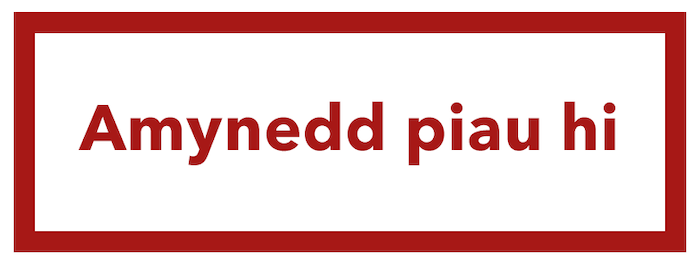
English translation: Patience wins the day, patience is a must
“___ piau hi” on its own is used to mean “___ is the best thing” or “it pays to ___”. You can combine it with many words including gofal (care), taw (silence), pwyll (care/caution), and my favourite, amynedd (patience).
- Mae’n cymryd munud neu ddau i lawrlwytho felly amynedd piau hi! (It takes a minute or two to download, so patience is needed!)
8. Rhoi’r ffidil yn y tô

English translation: To give up
I first learned this fun phrase from my friend and fellow learner Donna who uses it at every opportunity! It literally means “to put the fiddle in the roof” which is more or less the equivalent of the English idiom “to throw in the towel”.
- Rhoddodd Chris Evans y ffidil yn y tô fel cyflwynydd Top Gear. (Chris Evans gave up presenting Top Gear.)
- Waeth i fi roi’r ffidil yn y tô rŵan ddim! (I might as well give up now.)
9. Fel cath i gythraul
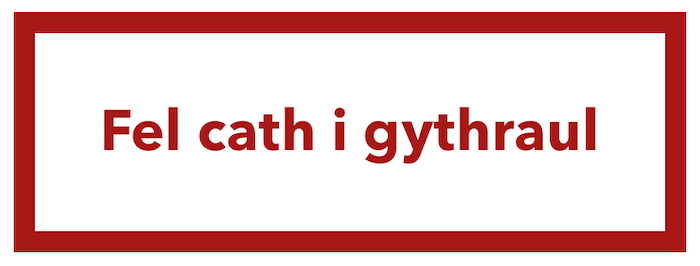
English translation: Like a bat out of hell
This Welsh idiom literally means “like a cat to the devil” and is similar in meaning to the English idiom “like a bat out of hell.” It’s normally used when someone is moving at top speed or something is happening quickly. I had the chance to use it for the first time yesterday when a young man sped by me in his souped-up car!
- Roeddet ti’n gyrru fel cath i gythraul! (You were driving like a bat out of hell!)
- Dan ni’n gweini bwyd fel cath i gythraul yn y caffi. (We’re serving food like mad in the cafe.)
10. Llyncu mul
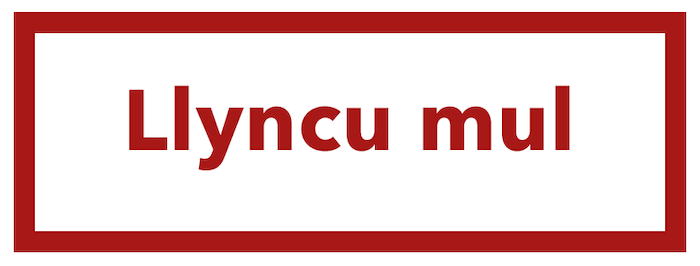
English translation: to sulk, be fed up with
Our final idiom comes from North Wales and is an unusual way of saying “to sulk”. The literal translation is “to swallow a donkey” – I think I’d be sulking if that happened to me too!
- Oedd o wedi llyncu mul efo fi. (He was fed up with me / resentful of me.)
- Peidiwch llyncu mul, fydd o ddim yn rhy llym. (Don’t sulk, he won’t be too harsh.)
Which of these Welsh idioms is your favourite?

